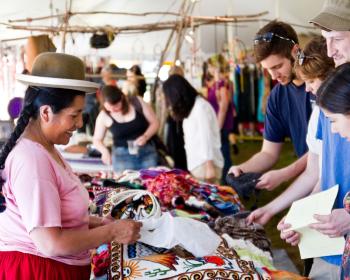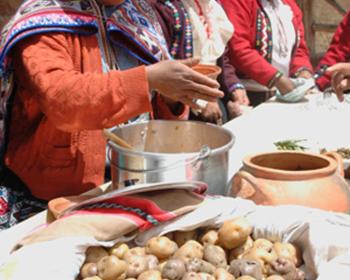Over two hundred women from Africa, the Arctic, Asia, Latin America, North America, the Pacific, and Russia are gathering in Lima, Peru from October 28th to 30th during the World Conference of Indigenous Women. They are demand the greater prominence of Indigenous women at every level of decision-making and calling upon governments to dedicate funding to attend to the specific needs of Indigenous women.
Watch UN Special Rapporteur on the Rights of Indigenous Peoples James Anaya's opening address to conference participants.


